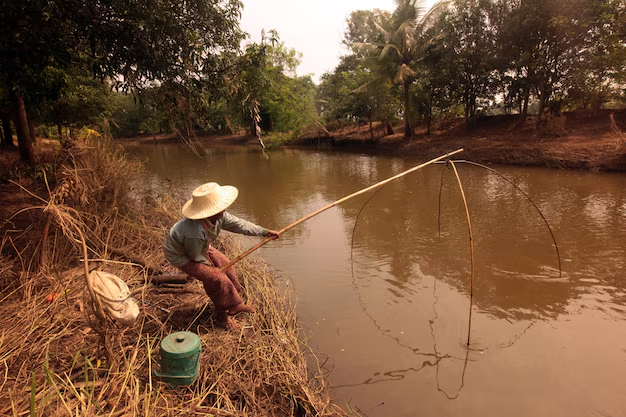Exploring Agriculture & Fisheries in Somalia
Somalia, a nation with a rich tapestry of history and culture, is also renowned for its vibrant agriculture and fisheries sectors. These industries are not just the backbone of the economy but also integral to the lifestyle and traditions of its people. Whether you're a visitor eager to explore Somalia's natural bounty or a local looking to engage with the essential aspects of its economy, this introduction to Somalia's agriculture and fisheries will offer you valuable insights and highlight why these sectors are so significant.
The Role of Agriculture in Somali Life
Agriculture is a cornerstone of Somali culture and economy. Somalia's agricultural sector is primarily based on pastoralism, with a large portion of the population involved in the raising of livestock such as camels, goats, sheep, and cattle. These animals are not only a source of food and income but also an integral part of Somali cultural identity. Additionally, crop farming, despite climatic challenges and limited arable land, is a crucial activity, with products like sorghum, maize, and beans forming the staple diet.
Attractions and Services in Agriculture
Visitors to Somalia can witness the bustling life of local markets where fresh produce and livestock trade showcase the essence of Somali agricultural life. Markets like the bustling Bakara Market in Mogadishu are an excellent place to start. Here, you can engage with local traders, explore diverse agricultural products, and even taste some authentic Somali cuisine made from organic ingredients.
For those interested in sustainable agricultural practices, several community-based projects emphasize innovations in drought-resistant crops and permaculture. These initiatives provide insight into Somalia's resilient response to environmental challenges and are worth exploring for those interested in sustainable development.
Discovering Somalia's Fisheries
Bordered by the Arabian Sea and the Indian Ocean, Somalia boasts one of the longest coastlines in Africa, enriching its fishery resources with an abundance of marine life. Fishing is not only a crucial economic activity but also a traditional practice that sustains many coastal communities.
Attractions and Services in Fisheries
The coastal cities of Kismayo, Bosaso, and Mogadishu offer opportunities to experience Somalia's fisheries in action. Visitors can take boat tours to witness the traditional fishing techniques that have been passed down through generations. These tours often include interactions with local fishermen, providing a firsthand experience of the vibrant marine culture of Somalia.
Moreover, the fish markets in these cities serve as lively hubs where the catch of the day is sold. Here, you can savor the freshest seafood, with many local restaurants offering dishes that highlight the unique flavors of Somali cuisine, such as grilled fish marinated in an array of local spices.
Why Somalia Stands Out
Somalia's agriculture and fisheries are not just economic drivers but are deeply embedded in the cultural and social fabric of the nation. The country's strategic location, combined with its rich maritime history and diverse ecosystems, positions it as a unique destination for those interested in exploring the intersection of culture, tradition, and industry.
For those eager to delve deeper, related subcategories such as sustainable agriculture practices, community-based fishing initiatives, and the intersection of technology and traditional methods offer fertile ground for exploration. Whether you're interested in the technical aspects or the cultural narratives, Somalia's agriculture and fisheries sectors offer a wealth of experiences. There is a treasure trove of stories waiting to be uncovered, revealing the indomitable spirit and resourcefulness of the Somali people.
